How long do pickleball balls last – Basic Guide (2024)
Before answering the question “How long do pickleball balls last? According to the pickleball coach When we play with old people who mostly hit gently, about 75% of my Dura balls last all summer. When we play with harder hitters it varies… months sometimes, weeks sometimes. The Pure 2 is somewhat similar, although there’s no discrete endpoint to their life. We just decide they’re too dead for our taste.
The overall message is that balls are treated very differently than tennis balls. In league play for tennis, new balls are used every time. In league play for pickleball, gently used balls are almost always the case.
As per this discussion let me tell you that the lifespan of pickleball balls depends on several factors. Let’s have a look!
How long do pickleball balls last
Factor 1: Outdoor vs. Indoor Play
Outdoor games tend to be more demanding on pickleball balls. They can become more challenging and may crack or go out of round after a while. In contrast, indoor balls usually last longer and are less prone to cracking. However, indoor balls may develop soft spots with extended use.
Factor 2: Tournament Play

When preparing for a tournament, it’s essential to practice with USAPA-approved balls. Even if a ball is listed as approved by the manufacturer, it must be on the official USAPA list to be used in non-sanctioned tournaments. Always verify the ball’s status before using it in a competitive setting.
Factor 3: Level of Play
The durability of your paddle largely depends on your level of play and frequency. If you play recreationally, once or twice a week, a good-quality paddle can last you around three to four years. For professional players who engage in daily rigorous play, their paddles can withstand the demands for at least a year, even with intense use.
If you’re a beginner or play a few times a week, a graphite composite paddle can serve you well for up to three years. With the latest composite paddles, you can generally anticipate an average lifespan of two to three years, with the exact duration influenced by the paddle’s quality.
Factor 4: Frequency of Play
The more frequently you play pickleball, the faster your balls may wear out. With regular use, pickleball balls can last anywhere from several weeks to a few months. If you’re a frequent player, you may find yourself replacing balls more often to maintain the quality of your game.
Factor 5: Playing Surface
The type of court surface you play on can impact the durability of pickleball balls. More complex surfaces, such as concrete or asphalt, can cause more wear and tear on the balls, potentially shortening their lifespan. Softer surfaces, like indoor gym floors or dedicated pickleball courts with softer underlays, may be gentler on the balls.
Factor 6: Storage Conditions
Proper storage can significantly prolong the life of your pickleball balls. Store them in a cool, dry place to prevent deformation and cracking. Avoid leaving them exposed to thrilling temperatures or direct sunlight, as these conditions can accelerate the aging process of the plastic, causing the balls to become brittle.
Factor 7: Brand and Quality
The quality of the pickleball balls you purchase also plays a vital role in their longevity. High-quality balls are designed to last longer and provide a consistent bounce. While they may be more expensive upfront, investing in top-quality balls can be a cost-effective choice in the long run, as they won’t require replacement as frequently.
How much do pickleball balls cost?
As per the above points or factors you will be able to answer How long do pickleball balls last. Now the question arises how much do pickleball balls cost? The answer is easy and simple, the average cost of pickleball balls is $2-$4 (for each). If you want to save money then it is recommended to buy pickleball balls in bulk.
What Are Pickleball Balls Made Of?
Pickleball balls are typically made of durable plastic materials, which have been carefully chosen for their ability to withstand the rigors of the game. The most common type of pickleball ball is made from polyethylene, although variations can include other plastic compounds. Polyethylene, a type of thermoplastic, offers a perfect balance of durability and bounce consistency. It can withstand the impact of paddle strikes and bouncing on hard surfaces without deforming or cracking easily. This resilience ensures that pickleball balls can endure countless rallies and games.
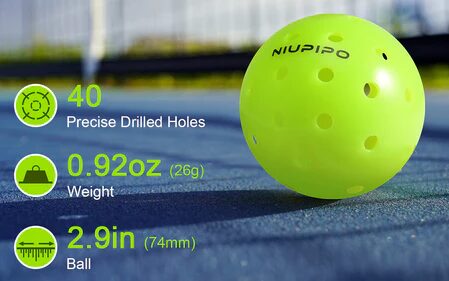
Manufacturers use advanced molding techniques to create pickleball balls with the proper density and thickness, enabling them to maintain a consistent bounce. The design and manufacturing process plays a crucial role in ensuring that pickleball balls meet the necessary standards and are suited to the sport’s demands. The combination of plastic materials and precise engineering results in pickleball balls that are resilient, reliable, and perfect for a game that demands quick reflexes and precision. These materials enable the balls to deliver the ideal combination of durability and playability that pickleball players need.
Signs Your Pickleball Balls Need Replacement
Recognizing when your pickleball balls need replacement is crucial for maintaining the quality and fairness of your game. Here are the key signs to watch out for:
Sign 1: Cracks or Dents
When you notice cracks, dents, or deformities on the surface of a pickleball, it’s a clear indication that the ball needs replacement. These imperfections can affect the ball’s flight, bounce, and overall playability.
Sign 2: Fading Color
Over time and with extensive use, the vibrant color of pickleball balls may start to fade. This is a visual cue that the balls have endured a significant amount of play and may no longer meet the necessary standards for consistent gameplay.
Sign 3: Reduced Bounce
A pickleball’s bounce is a critical element of the game. If you notice that a ball no longer bounces as well as it used to, it has likely reached the end of its life cycle. A diminished bounce can affect the fairness of the game and players’ ability to predict ball trajectories.
Sign 4: Squishy or Soft Feel
When you squeeze a pickleball, it should have a firm and solid feel. If you find that a ball has become squishy or feels soft, it’s a clear sign that the internal structure of the ball has deteriorated, and it’s time to retire it.
Sign 5: Loss of Sound
Pickleball balls often make a distinctive sound when struck. If you notice that a ball no longer produces the characteristic “pop” or sound upon impact, it may indicate that the ball has worn out and should be replaced.
Incorporating these signs into your regular ball inspection routine will help you determine when it’s time to invest in a new set of pickleball balls. Replacing worn-out balls ensures that your game remains fair, enjoyable, and accurate to the sport’s standards.
Tips to make a pickleball ball last longer?
If you want your pickleball balls to last longer? Then follow these simple and easy tips, they will help you in playing more with the same pickleball ball:
Tips 1: Avoid smacking the ball on the ground
Avoid smacking the ball on the ground. Ground hits wear it out faster. Practice hitting it mid-air to save your ball from unnecessary stress. Also, try serving without bouncing the ball it’s a game-changer.
Tip 2: Use a softer pickleball paddle
It’s like giving your ball a cushion to land on. Not sure which paddle to choose? Ask a coach or a seasoned player for advice. Softer paddles offer more control and less power.
Tip 3: Store the pickleball ball in a cool place
When your pickleball isn’t in action, treat it right. Store it in a cool, dry spot away from direct sunlight. Keep it clear of sharp objects or anything heavy. A well-cared-for ball is a longer-lasting ball.
Pickleball ball VS tennis ball?

Pickleball balls are lighter than tennis balls. The weight of a tennis ball is much higher as compared to the pickleball. Let me tell you with numbers. The weight of tennis balls is around 2 to 3 ounces, as compared to the weight of pickleball balls is less than 1 ounce (around 0.70 to 0.90).
Indoor game ball vs outdoor game ball

In the world of pickleball, deciding between outdoor and indoor balls is more than just where you play; it’s about weight, how they’re made, and the holes in them. Outdoor balls are a bit heavier (about 1 ounce more) to resist the wind. They’re tougher, go faster, and have smaller holes.
On the other hand, indoor balls are lighter, softer, and have bigger holes. This makes them easier to control indoors and gives a gentler bounce off the paddle, leading to longer rallies. But it’s trickier to hit them hard for those quick volleys.
FAQs
How long do pickleball balls typically last?
The lifespan of pickleball balls can vary, but with regular use, they generally last from several weeks to a few months. Factors such as usage frequency, playing surface, and ball quality influence their durability.
What should I look for when inspecting my pickleball balls for wear and tear?
When checking pickleball balls for replacement, watch for signs like cracks, dents, fading color, reduced bounce, or a squishy feel. These are clear indicators that a ball has reached the end of its life cycle.
Can I extend the life of my pickleball balls?
You can prolong the lifespan of your pickleball balls. Appropriate storage in a cool, dry place, avoiding exposure to thrilling temperatures, and investing in high-quality balls are all steps you can take to extend their usability.
Are there different types of pickleball balls available, and do they have varying lifespans?
Sure, there are different types of pickleball balls, such as indoor and outdoor balls. While the lifespan may vary slightly, the same factors affecting durability apply to both types. The choice of ball type should be based on where you predominantly play.
Can I use worn-out pickleball balls for practice or recreational play?
Worn-out pickleball balls can still be used for practice or casual games. However, keep in mind that their performance may not be consistent, so they may not be suitable for serious matches or competitions.
What should I consider when purchasing new pickleball balls to ensure longevity?
To ensure longer-lasting pickleball balls, consider investing in high-quality, tournament-grade balls. These are designed to meet specific performance standards and tend to have a longer lifespan compared to lower-quality options.
Can extreme weather conditions affect the lifespan of pickleball balls?
Yes, extreme weather conditions, such as exposure to intense heat or cold, can accelerate the aging process of pickleball balls. Storing them in a controlled environment can help preserve their quality and extend their life.
how long does a pickleball paddle last?
The longevity of pickleball balls can vary depending on several factors, including how often they are used, the playing surface, storage conditions, and the quality of the balls themselves.
Can you suggest pickleball balls near me?
Yes, use Google Maps.
For the latest updates follow us on Google News:

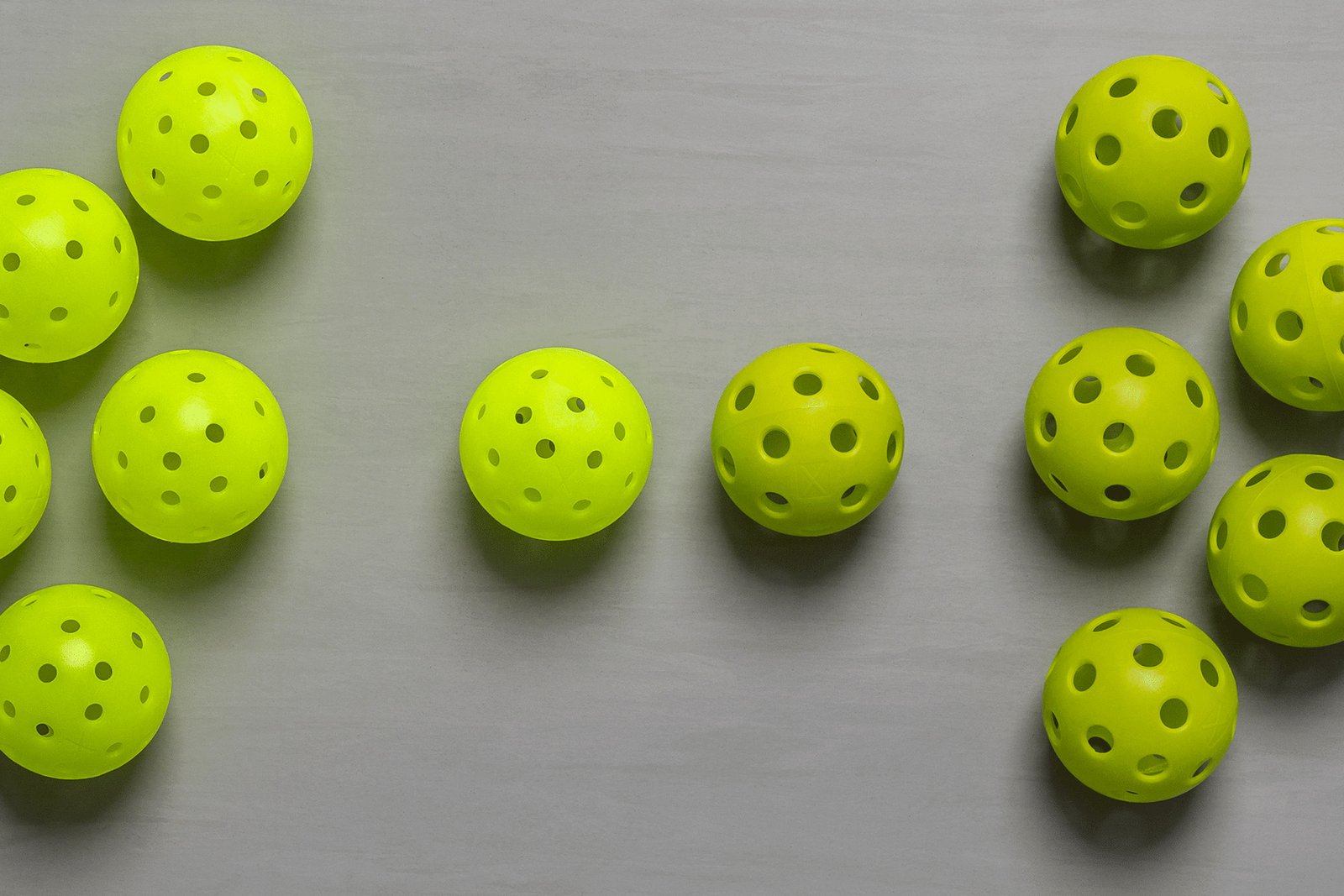

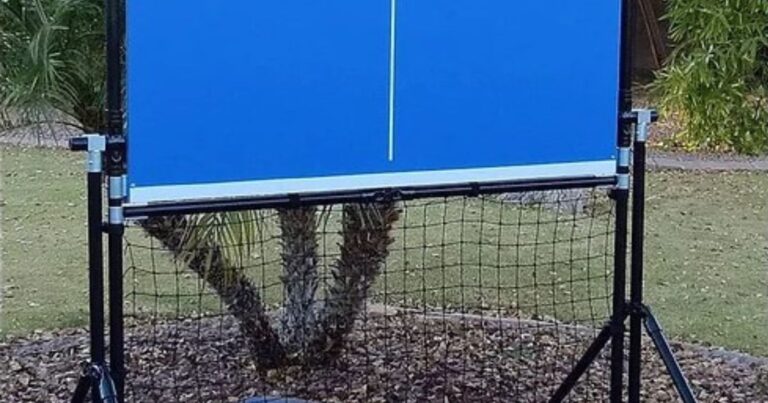
![COURT TIME TO CALORIES CALCULATOR ONLINE FREE & EASY [2026] 8 court time to calories calculator online](https://choosepickleballs.com/wp-content/uploads/2025/11/5-768x432.png)

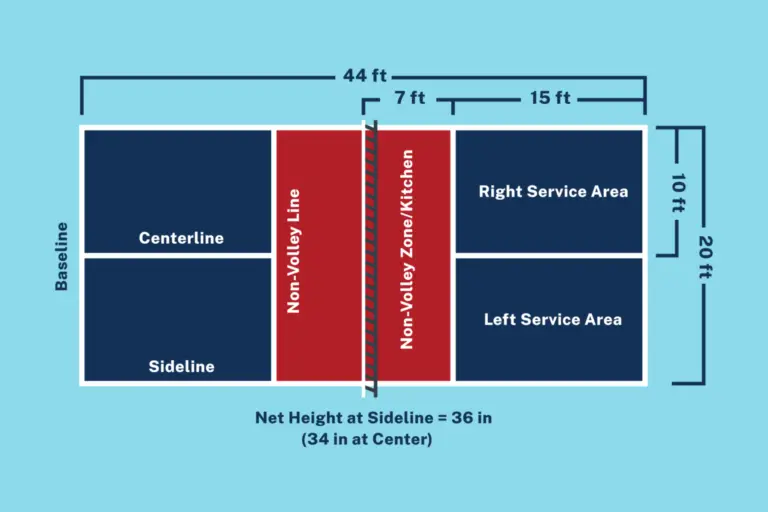
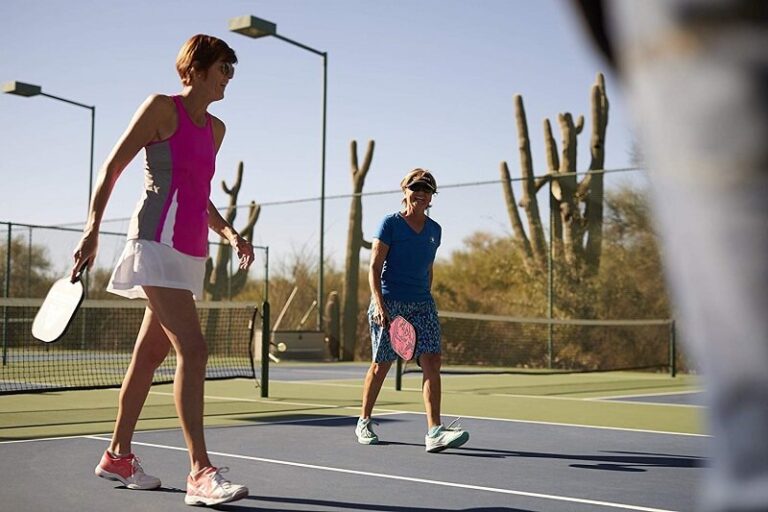
3 Comments
Comments are closed.